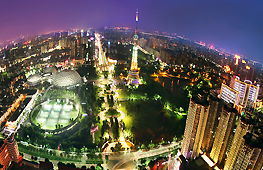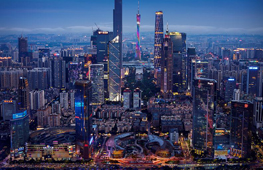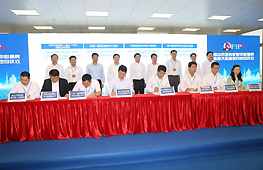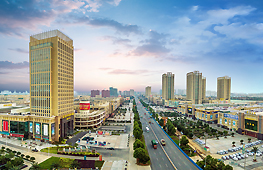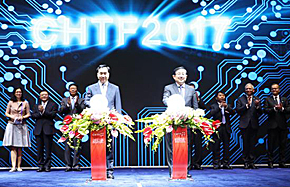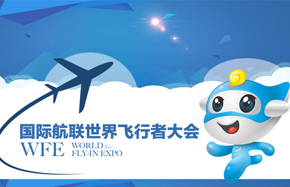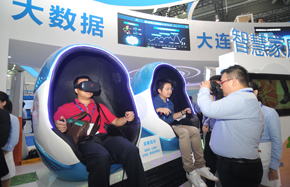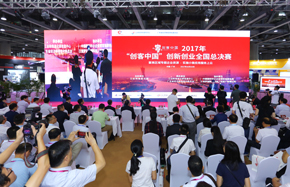Creativity encouraged at Beijing summit
Creativity and innovation chart a path to sustainable urban development, experts and officials said at the third UNESCO Creative Cities Beijing Summit last week.
Focusing on the digital economy, the summit held at Beijing's Shougang Industrial Park on Thursday and Friday explored how to make full use of technological innovation and cultural creativity to improve urban management.
A city is a special space for union, cooperation and innovation and cities' development will determine the future of societies, according to UNESCO Director-General Audrey Azoulay.
As a UNESCO Creative City of Design, Beijing provides an exemplary combination of profound history and state-of-the-art technology, she said.
Beijing Mayor Chen Jining told the summit in a video speech that the host city will create a better public health safety system and increase coordinated efforts to promote social and economic development amid the prevention and control of COVID-19.
"Digital technology and creative design have injected vigor into our city," Chen said."The latest technologies including artificial intelligence and big data serve as a key driving force behind Beijing's economic growth."
The mayor encouraged more new business modes and products. He said the city will enhance intellectual property protection and utilization and create a more dynamic innovation ecosystem.
Beijing will also advance the construction of a national comprehensive demonstration zone for opening-up expansion in the service industry and a pilot free trade zone, in a bid to improve its international influence on cultural creativity and technological innovation, he noted.
Since it was designated as a national center for politics, culture, international exchanges and sci-tech innovation in 2014, the city has been on a fast track to innovation-driven high-quality development.
Government data show Beijing is home to more than 90 universities and colleges with a combined school enrollment surpassing 1 million, as well as over 1,000 research institutions, 44 public libraries and 183 museums and cultural centers.
Recent years saw about 6 percent of the city's GDP spent on research and development, putting Beijing in the forefront of global cities, according to Xu Qiang, director general of the Beijing Science and Technology Commission.
With Zhongguancun Science City, Huairou Science City, Future Science City and the Beijing Economic-Technological Development Area as key innovation platforms, Beijing has made a series of breakthroughs in core technologies, Xu said.
Since Beijing joined the UNESCO Creative Cities Network in 2012, the design industry has developed into a new growth spot in local economy, he added.
Some 150,000 professionals worked in nearly 900 major design firms in Beijing in 2018. More than 3,760 cultural and related businesses operated in the city and their combined business revenue increased 8.2 percent in 2019 from a year earlier, according to official statistics.
"Through the further integration of technology and culture, we will promote capital flow and realize economic resumption and sustainable development," Xu said.
As the first international creative cities-themed event organized by UNESCO in cooperation with local government since the COVID-19 outbreak, the gathering of the UNESCO Creative Cities Network members also addresses resumption of production and business amid the prevention and control of COVID-19 in the post-pandemic era.
Ernesto Ottone Ramirez, assistant director-general for culture at UNESCO, unveiled the e-publication of the UNESCO Creative Cities' Response to COVID-19 at the summit.
It provides 70 innovative cases, which the UNESCO Creative Cities Network had collected from more than 90 member cities in 44 countries since March, to showcase how to respond to the pandemic through culture and creativity.
Among encouraged responses is Beijing's online medical consultation platform for COVID-19, launched in early February. It took six days to set up the platform, where more than 1,700 doctors have provided consultation services free of charge for over 58 million online visitors, Xu said.
Virginia Raggi, mayor of Rome, Italy, said: "We strongly believe in international collaboration. Multilateralism and reciprocity represent a founding value of our democracy."
"These values are all the more important in the present historical phase, characterized by the evolution of the pandemic, which has made our planet suddenly smaller and our communities closer."
Jan Vapaavuori, mayor of Helsinki, Finland, said: "We need new innovative solutions, even when they mean significant changes to our existing systems. This is where design thinking can be of immense help. The 'Three Ds' (design, dialogue and digitalization) also help us fight the most crucial challenge of our time: global warming."
During the two-day event, more than 30 representatives of international organizations and officials from 19 cities in 13 countries and regions shared their insights into urban management and sustainable development.
It was the third time that Beijing has played host to the UNESCO Creative Cities summit. The previous two were held in 2013 and 2016.






